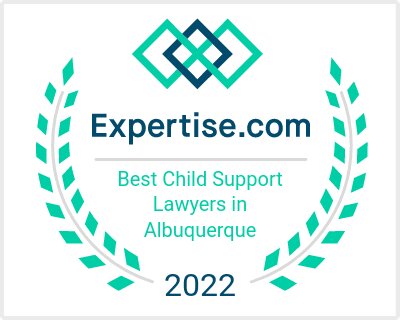Best Adoption Lawyers in New Mexico
Share your needs with us, get contacted by law firms.
Free. Takes 2 min.
Free Guide to Hiring a Family Lawyer
Or refine your search by selecting a city:
List of the best lawyers in New Mexico, United States
About Adoption Law in New Mexico, United States
Adoption is a legal process that creates a permanent parent-child relationship between individuals who are not biologically connected. In New Mexico, adoption is governed by state laws designed to protect the best interests of the child while ensuring the rights of all parties are respected. Adoptions can occur for various reasons, such as when biological parents are unable or unwilling to care for a child, through stepparent adoptions, or as a result of foster care placements. Understanding the adoption process and the related legal requirements in New Mexico is essential for anyone considering adoption.
Why You May Need a Lawyer
Adoption is a deeply personal and significant legal step, and hiring an attorney can help you navigate its complexities. Some situations where legal help is especially beneficial include:
- When terminating parental rights of a biological parent is necessary
- If you are unsure about requirements for consent from birth parents
- In cases of contested adoptions where someone objects to the adoption
- When adopting across state lines or internationally
- If you are working with an adoption agency or adopting from foster care
- When dealing with Native American child adoptions that involve the Indian Child Welfare Act (ICWA)
- If you need help understanding post-adoption contact agreements
- When preparing and filing court documents correctly
A lawyer can provide legal advice, advocate for your rights, and make the process as smooth as possible.
Local Laws Overview
Adoption laws in New Mexico are unique in several respects. Some key legal aspects include:
- Who Can Adopt: Any adult may adopt in New Mexico, including single individuals and married couples. Same-sex couples and unmarried couples may also petition jointly.
- Consent: The consent of both biological parents is generally required unless the court decides parental rights should be terminated due to abandonment, neglect, incapacity, or other legal reasons.
- Waiting Period: Parental consent cannot be given until at least 48 hours after the child’s birth. The waiting period allows time for the biological parent to consider their decision.
- Home Study: Most adoptions require a pre-placement study (home study) conducted by a licensed social worker or adoption agency to assess the suitability of the adoptive home.
- Indian Child Welfare Act (ICWA): If the child is of Native American heritage, additional procedures must be followed to protect the child’s tribal rights as outlined in federal law.
- Types of Adoption: New Mexico allows for agency adoptions, independent adoptions (direct arrangements with birth parents), stepparent adoptions, and adoptions from foster care.
- Open vs. Closed Adoptions: Open adoption allows for some level of contact between adoptive and birth families, while closed adoption does not share identifying information.
- Background Checks: Criminal background checks and child abuse registry clearances are required for all prospective adoptive parents.
- Finalization: Adoptions are finalized in court, where a judge reviews the case and issues a final adoption decree.
Frequently Asked Questions
Who can adopt a child in New Mexico?
Any adult resident of New Mexico, whether single or married, can petition to adopt. Married couples must typically adopt jointly, except in cases where one spouse is the biological or adoptive parent.
Do birth parents have to consent to the adoption?
Yes, consent from both biological parents is usually required unless their parental rights have been terminated by a court due to specific legal grounds such as abandonment or unfitness.
What is a home study, and is it required?
A home study is an assessment of the prospective adoptive family's home environment and suitability to adopt. It is required for most adoptions in New Mexico, and is conducted by a licensed professional.
How long does the adoption process take?
The adoption process timeline varies based on the type of adoption and specific circumstances. It may take several months to over a year, particularly if legal complexities arise or court involvement is significant.
Can adoption records be accessed by adoptees?
New Mexico adoption records are generally sealed. Adult adoptees may be able to access certain non-identifying information, but identifying information requires court approval or mutual consent.
What is required for a stepparent adoption?
In a stepparent adoption, the spouse of a biological parent adopts the child. The non-custodial parent's rights must typically be terminated, either voluntarily or through a court process, before finalization.
Is it possible to have an open adoption in New Mexico?
Yes, open adoptions are allowed, permitting ongoing contact or information sharing between the adoptive and birth families, as agreed upon in a post-adoption contact agreement.
What happens if the child is of Native American heritage?
Adoptions involving Native American children must comply with the Indian Child Welfare Act (ICWA), adding specific protections and notifications to ensure the child's tribe is involved in the process.
Do adoptive parents need to be residents of New Mexico?
While most adoptive parents must be New Mexico residents, exceptions exist for relative adoptions or adoptions involving children in state custody. Interstate adoptions are governed by the Interstate Compact on the Placement of Children (ICPC).
How do I finalize an adoption in New Mexico?
Finalization occurs at a court hearing, where the judge ensures all legal requirements are met and issues a final decree of adoption. This establishes the legal relationship between parent and child.
Additional Resources
If you need more information, the following resources and organizations can be valuable for guidance or assistance:
- New Mexico Children, Youth and Families Department (CYFD) - State agency responsible for child welfare and adoption services
- New Mexico Adoption Exchange - Provides resources for adoptive families and children in foster care
- New Mexico Courts - Offers procedural information and access to adoption forms
- Licensed adoption agencies and social workers in New Mexico
- Local legal aid organizations providing support for adoption matters
Next Steps
If you are considering adoption in New Mexico or have questions about your legal rights and options, it is important to consult with an experienced attorney who specializes in adoption law. Start by gathering your relevant information, such as your background and your relationship with the child or parents, and make a list of questions to ask a lawyer. Reach out to local legal professionals or adoption agencies for a consultation. If affordability is a concern, explore legal aid organizations that may offer free or reduced fee services. Taking these steps can ensure that you understand the process, protect your rights, and provide the best possible future for the child involved.
Lawzana helps you find the best lawyers and law firms in New Mexico through a curated and pre-screened list of qualified legal professionals. Our platform offers rankings and detailed profiles of attorneys and law firms, allowing you to compare based on practice areas, including Adoption, experience, and client feedback.
Each profile includes a description of the firm's areas of practice, client reviews, team members and partners, year of establishment, spoken languages, office locations, contact information, social media presence, and any published articles or resources. Most firms on our platform speak English and are experienced in both local and international legal matters.
Get a quote from top-rated law firms in New Mexico, United States — quickly, securely, and without unnecessary hassle.
Disclaimer:
The information provided on this page is for general informational purposes only and does not constitute legal advice. While we strive to ensure the accuracy and relevance of the content, legal information may change over time, and interpretations of the law can vary. You should always consult with a qualified legal professional for advice specific to your situation.
We disclaim all liability for actions taken or not taken based on the content of this page. If you believe any information is incorrect or outdated, please contact us, and we will review and update it where appropriate.
Browse adoption law firms by city in New Mexico
Refine your search by selecting a city.















